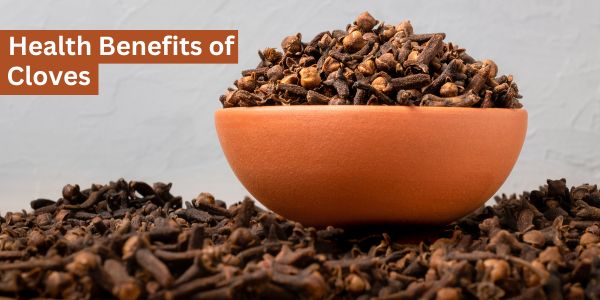Introduction
The years after 50 are often called the golden years, and honestly, they’ve earned that title. It’s that incredible stage in life where we get to savor our best moments; past, present, and future and truly focus on what matters most. But, let’s be real: as we step into this exciting chapter, our hearts start nudging us with little reminders they want some VIP treatment, a little extra love and care.

So, the big question is: how do we keep our hearts in tip-top shape for the long haul? Well, believe it or not, the answer might just be sitting right in your kitchen or waiting for you at the grocery store.
In this writeup, we’re diving into 10 fantastic foods that are absolute superheroes for your heart. P.S.: As you cruise through these golden years, keep reading because a happy, healthy heart means more of those golden moments ahead.
1. Walnuts
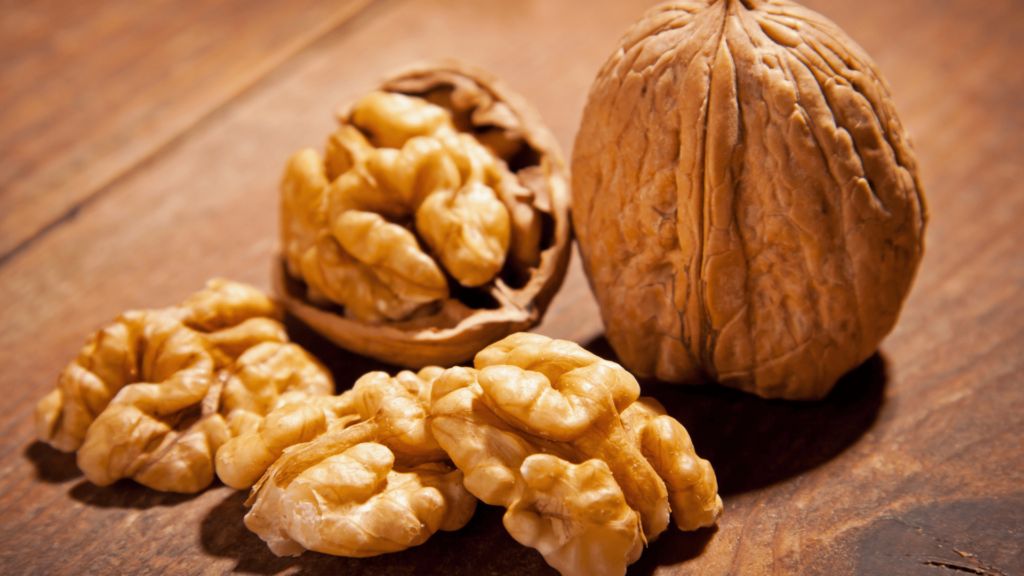
Have you ever cracked open a walnut and thought, “Hey, this looks just like a tiny brain!”? Well, turns out, walnuts are not only brain food, but they’re also heart food. They’ve been a big deal in Mediterranean and Central Asian diets for centuries; people back then already knew these little nuts were something special.
Walnuts are packed with a powerful omega-3 fatty acid called alpha-linolenic acid (ALA). Picture it as a superhero donning a cape, shielding your heart from inflammation, the sneaky villain behind artery problems. But wait, there’s more! A study from Harvard T.H. Chan School of Public Health found that eating walnuts twice a week reduced the risk of cardiovascular disease by 19%.
According to a 2018 study published in the American Journal of Clinical Nutrition, people who consumed walnuts daily experienced a significant reduction in LDL (bad) cholesterol and total cholesterol levels
These nuts come loaded with antioxidants, tiny but mighty warriors that guard your cells against harmful free radicals. One standout player is L-arginine, an amino acid that keeps your blood vessels nice and relaxed, reducing the strain on your heart.
Add in fiber and magnesium, and you’ve got a perfect combo that tackles high cholesterol and blood pressure like a pro. Walnuts truly are the crunchy, unsung champions of heart health.
2. Oats
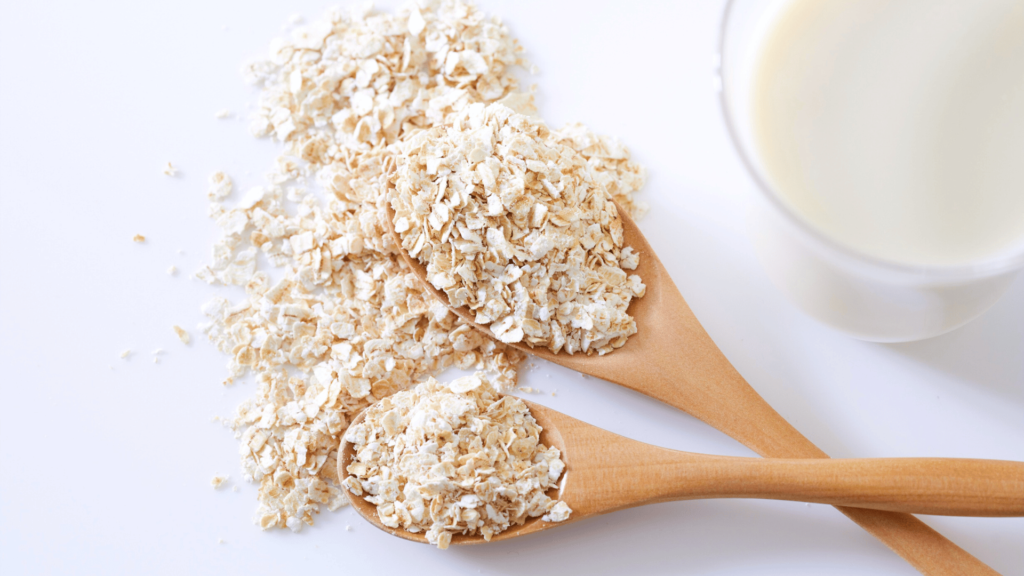
Oats have been fueling civilizations for over 2,000 years. And they’re still going strong, making their way into breakfast bowls around the world. So, what’s the magic inside these humble grains? One word: beta-glucan.
This special fiber forms a gel-like substance in your gut that latches onto cholesterol-rich bile and helps flush it out of your system. Lower LDL (the bad cholesterol) = a happier heart. The Journal of Nutrition reported that consuming 3 grams of beta-glucan daily can lower LDL cholesterol by up to 10%.
But oats aren’t just about fiber; they’re packed with powerful antioxidants called avenanthramides, which are like tiny shields protecting your blood vessels from inflammation and oxidative stress. And let’s not forget magnesium! This essential mineral helps keep your heart and muscles running smoothly.
A 2020 study in the European Journal of Clinical Nutrition found that regular oat consumption lowered systolic blood pressure by 7.5 mmHg in adults with hypertension So, the next time you sit down to a warm, comforting bowl of oatmeal, just know you’re giving your heart a much-needed hug.
3. Salmon

This rich, flaky fish isn’t just a treat for your taste buds; it’s a superstar for your heart. Indigenous cultures have long relied on salmon for its nutrient-packed goodness, and modern science backs them up.
The secret? Two powerhouse omega-3 fatty acids: EPA and DHA. These champions swoop in to battle inflammation, lower triglycerides, and keep blood vessels in top shape. A meta-analysis of 17 studies published in JAMA found that consuming fish regularly was associated with a 36% lower risk of heart disease-related death.
But salmon doesn’t stop there; it’s a fantastic source of high-quality protein, essential for repairing heart tissues. And don’t overlook its B-vitamin trio (B12, B6, and niacin), which helps protect your DNA, maintain energy, and reduce inflammation. Plus, selenium, another key nutrient in salmon, acts as an antioxidant to keep your heart safe from damage.
Also Read: 9 Benefits Of Eating Peanut Butter Jelly Sandwich Every Day
Grilled, broiled, or sashimi-style, however you enjoy it, salmon is serving up some serious love for your ticker. The American Heart Association (AHA) recommends eating two servings of fatty fish per week.
4. Blueberries
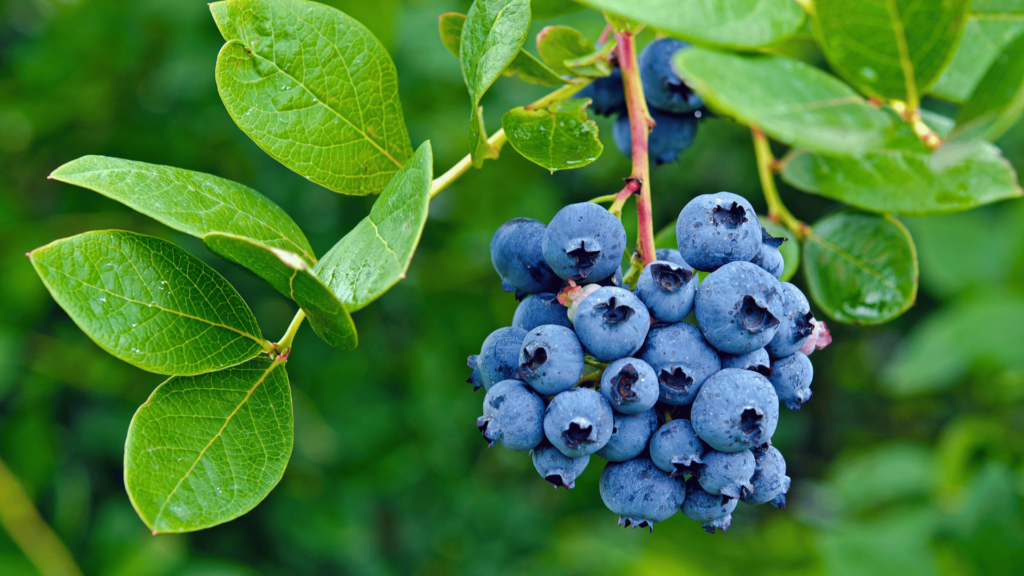
Small but mighty, blueberries have been a staple in Native American diets for centuries. What makes these little berries so special? One word: anthocyanins. These powerful antioxidants give blueberries their vibrant blue hue and pack a punch against free radicals that threaten your cardiovascular system.
Blueberries are also rich in vitamin C, which teams up with antioxidants to protect your heart. Plus, they contain fiber, especially pectin, which acts like a broom for your arteries, sweeping away excess cholesterol.
A study published in the American Journal of Clinical Nutrition found that consuming one cup of blueberries per day for six months reduced arterial stiffness by 2% in adults with metabolic syndrome.
Potassium is another heart-friendly nutrient in blueberries, helping to keep blood pressure in check. And recent research even suggests that regular blueberry consumption improves endothelial function, essentially fine-tuning how your blood vessels operate.
Next time you grab a handful of these juicy gems, know that you’re not just indulging in a delicious snack, you’re giving your heart a boost, too!
5. Spinach
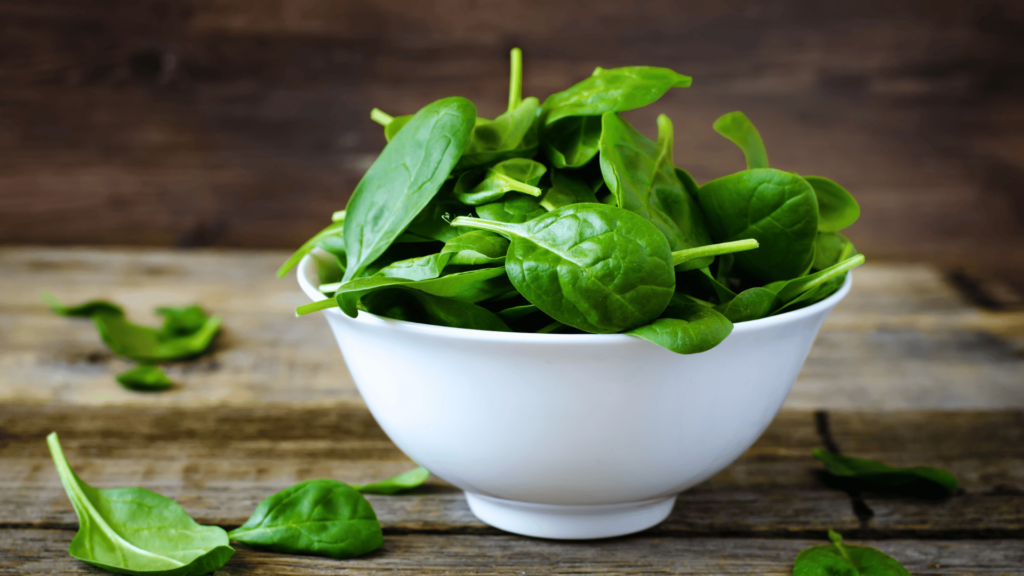
Spinach isn’t just a muscle-building favorite, it’s also your heart’s quiet protector. While most people associate lutein with eye health, did you know it’s a secret weapon for your heart, too? A 2021 study in the European Heart Journal found that people with higher magnesium intake had a 34% lower risk of sudden cardiac death.
This leafy green is also loaded with magnesium, a mineral crucial for keeping your heart’s rhythm steady. And here’s the real magic: dietary nitrates. Spinach naturally produces nitric oxide, a molecule that signals blood vessels to relax, which lowers blood pressure and ensures smooth circulation. Fiber helps keep cholesterol levels in check, while folic acid works behind the scenes to prevent artery damage.
A 2015 study in the Journal of Clinical Hypertension found that consuming nitrate-rich vegetables like spinach reduced blood pressure in just a few hours. Toss it in your salad, blend it into a smoothie, or steam it up—however you eat it, spinach is doing your heart a solid.
6. Dark Chocolate
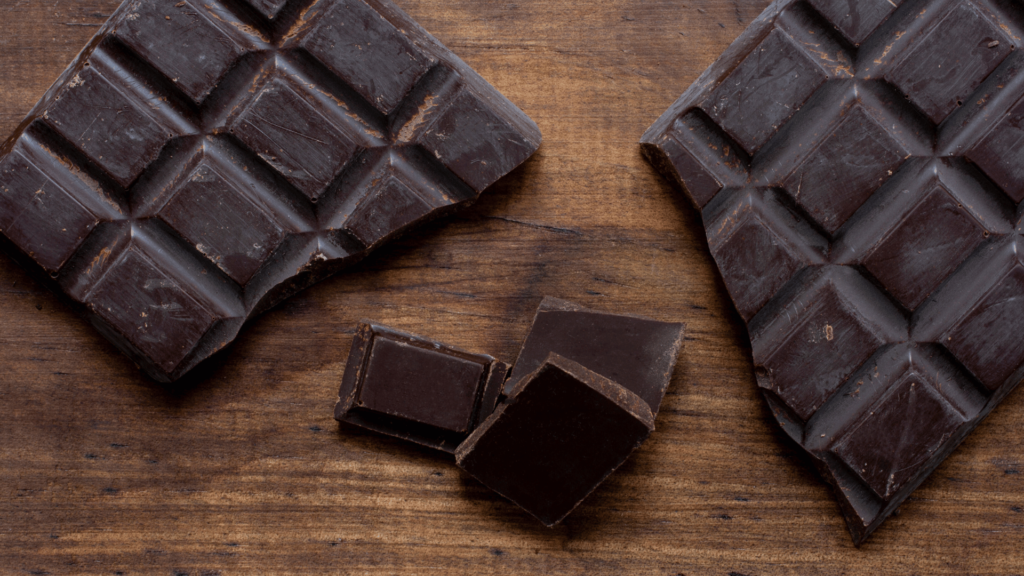
Let’s talk about a guilty pleasure that might not be so guilty after all, dark chocolate! If you thought chocolate was just for indulgence, think again. Dark chocolate is like the hero of the candy world, especially the ones loaded with cocoa, originally coming from cacao trees in Central and South America. Over the years, it has evolved from a tasty treat to a bona fide health superstar.
So, what’s the magic in dark chocolate? Flavonoids, especially these awesome things called flavonols found in cocoa. Picture them as little cheerleaders for your arteries, encouraging them to make nitric oxide, which in turn relaxes your arteries, bringing down blood pressure and upping blood flow.
A meta-analysis of 19 studies published in the BMJ found that people who consumed moderate amounts of dark chocolate had a 37% lower risk of heart disease.
And guess what? Dark chocolate is packed with antioxidants, which act as your heart’s personal bodyguards against free radicals. Regularly enjoying a bit of high-quality dark chocolate has been linked to smoother blood flow, a lower risk of blood clots, and a boost in good HDL cholesterol while helping to lower the bad LDL cholesterol.
But hold on, there’s a catch! Dark chocolate, while heart-friendly, can be a sneaky source of calories, sugar, and fat. Moderation is key, my friend. When you go chocolate shopping, aim for varieties with at least 70% cocoa, and always remember, a little piece of this dark chocolate goodness can go a long way in keeping your heart happy.
7. Beans and Lentils
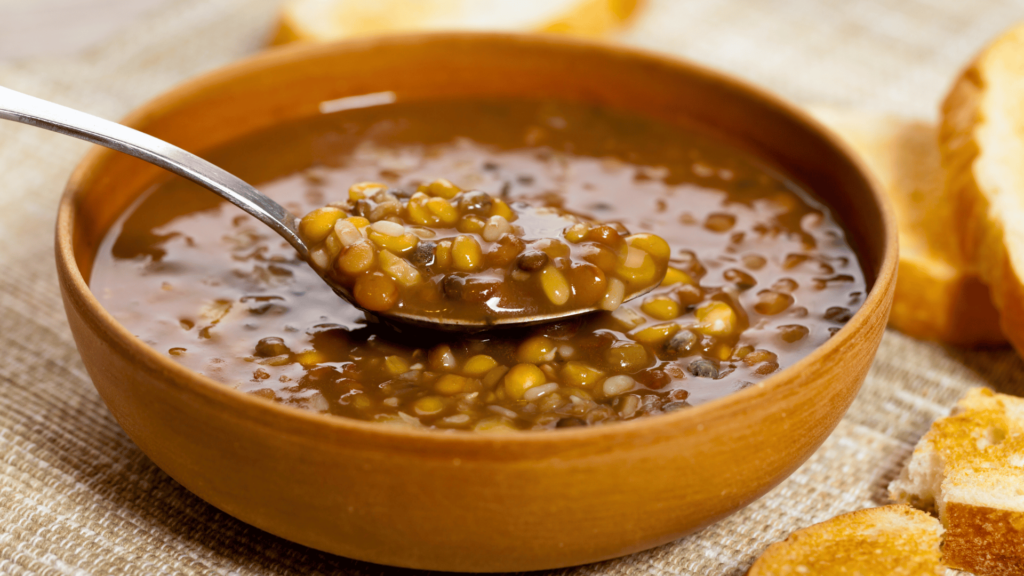
Beans and lentils, members of the legume family, have been dietary mainstays across cultures for thousands of years. Whether you’re in the Mediterranean or hanging out in the Indian subcontinent, these little fellas have been doing wonders for both our meals and our heart health.
First up, let’s talk about soluble fiber: beans and lentils are practically overflowing with it. This type of fiber teams up with cholesterol in your gut and whisks it away before it can wreak havoc in your bloodstream. A large-scale study in JAMA Internal Medicine found that people who consumed four servings of legumes per week had a 14% lower risk of heart disease.
But wait, there’s more! These legumes come loaded with heart-friendly minerals, take potassium, for example; it’s like the counterpuncher to sodium, helping to keep your blood pressure in check. Then there’s magnesium, another MVP found in beans and lentils, it’s all about keeping your heartbeat steady and your blood vessels happy.
Also Read: 5 Vitamins You Should Avoid Before Bed To Sleep Better
Oh, and here’s a cool trick: beans and lentils are low on the glycemic index scale, meaning they release glucose into the blood slowly, preventing sudden spikes in blood sugar. This is great for people with diabetes because it helps keep their heart disease risk in check.
And here’s the grand finale, regularly eating beans and lentils has been linked to lower levels of homocysteine, which, when elevated, can spell trouble for your heart. So the next time you’re tucking into a hearty bowl of chili or a comforting lentil soup, give yourself a pat on the back for doing your heart a solid.
8. Avocado
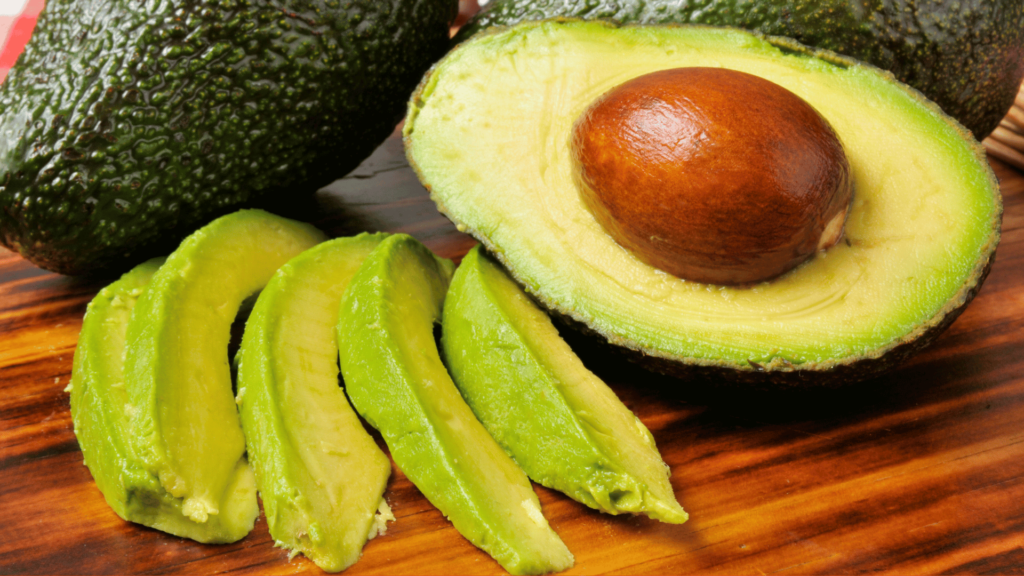
Let’s talk about avocados, the trendy millennial fruit that has completely taken over toast and social media feeds. But beyond being Instagram-famous, avocados are packed with serious heart health benefits, especially for those who’ve hit the golden 50.
Crack open that tough green skin, and you hit the jackpot of good stuff: monounsaturated fats. These healthy fats tell bad cholesterol (LDL) to take a hike, less LDL means a lower chance of atherosclerosis, a condition that clogs up your arteries and can lead to heart disease.
A study published in the Journal of the American Heart Association found that replacing butter or margarine with avocado reduced LDL cholesterol by up to 13%.
But hold on, avocados aren’t done showing off yet! They’re also packed with potassium, more than bananas, in fact. Potassium works like a backstage wizard, making sure your blood pressure behaves, and that’s a big deal because high blood pressure can set the stage for heart problems, especially as you age.
Ever heard of beta-sitosterol? Avocados have it in spades! This special compound helps keep cholesterol levels in check. An average avocado dishes out a cool 76 mg of it. And let’s not forget vitamin E, no supplements needed. This antioxidant vitamin acts as a shield for your heart, keeping LDL cholesterol from turning into artery trouble.
So, the moral of the story? Avocados aren’t just about looking good on your toast or turning into guacamole, they’re like your heart’s best buddy in more ways than one.
9. Olive Oil
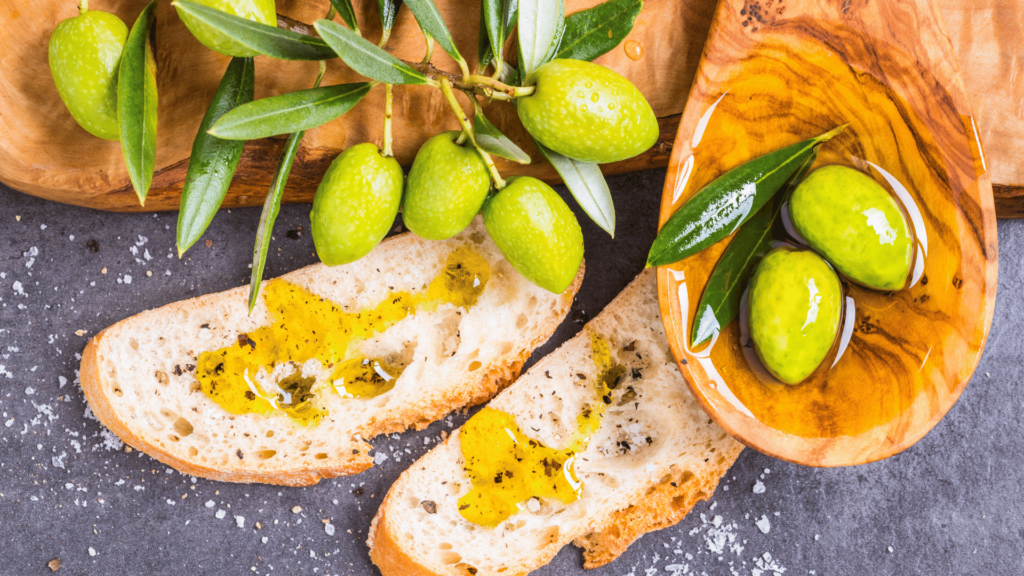
Olive oil, the shining star of Mediterranean cuisine, is more than just a cooking fat. This golden elixir is tied to longevity and heart health, making it a staple for anyone looking to keep their ticker in top shape.
First off, olive oil is loaded with monounsaturated fat, and about 73% of it is oleic acid. Studies suggest that oleic acid is like a superhero for fighting inflammation, which is a big no-no for your heart.
The PREDIMED trial, a landmark study in the New England Journal of Medicine, found that people who followed a Mediterranean diet supplemented with extra-virgin olive oil had a 30% lower risk of cardiovascular events.
But wait, there’s more: olive oil is packed with powerful antioxidants that protect cholesterol from turning into a bad guy. You see, cholesterol can go rogue and cause artery inflammation (bad news), but antioxidants, especially one called oleuropein swoop in to save the day.
And guess what? Olive oil has compounds that work like aspirin, preventing blood from turning into a thick, sludgy mess. Smooth blood flow is the name of the game, preventing dangerous clots that could lead to heart issues. Plus, if you have high blood pressure, olive oil has got your back, it’s like a natural chill pill for your blood pressure.
So don’t just drizzle it! Every drop of olive oil is packed with heart-loving benefits.
10. Red Wine

Many have heard that a glass of red wine a day could keep the cardiologist away. But is it a myth? Not quite! There’s actual science behind it, thanks to powerful compounds called polyphenols.
One superstar polyphenol in red wine is resveratrol. This stuff is like a health rockstar, packed with antioxidant and anti-inflammatory powers. Think of it as a bodyguard for your blood vessels, keeping them safe from harm and giving bad cholesterol (LDL) a run for its money.
But hold your glass, there’s more! Resveratrol also plays a role in preventing blood clots by keeping platelets from sticking together. Imagine it as the bouncer for your bloodstream, making sure everything flows smoothly.
A study in the European Heart Journal found that moderate red wine consumption (one glass per day) was linked to a 20% lower risk of heart disease.
Then there’s another mouthful: proanthocyanidins, these compounds shield your heart by reducing inflammation and protecting your blood vessels. But remember, the key here is balance: too much of a good thing can turn bad, and that’s true for red wine too. Sip responsibly, and you’re giving your heart a little extra love.
Conclusion
While these 10 foods provide excellent heart-health benefits, they work best when combined with an active lifestyle, regular medical check-ups, and a positive mindset. Taking care of your heart is a lifelong commitment, and these dietary choices can help ensure every beat counts.




